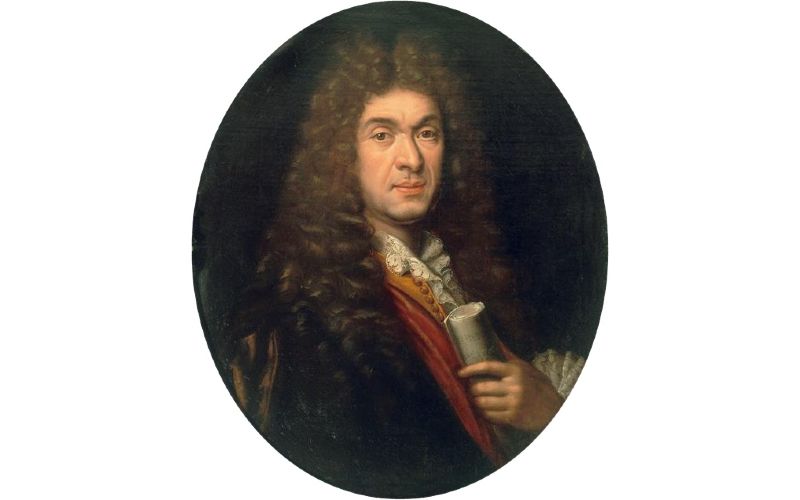100 Heroes: Jean-Baptiste Lully
The gay man who helped shape baroque music.

Jean-Baptiste Lully was a composer, instrumentalist, and dancer who spent most of his life working in the court of Louis XIV of France.
He's considered a master of the French Baroque style.
Early life
Born in Florence in 1632, Lully received his musical education from a Franciscan friar.
Lully attracted the attention of Roger de Lorraine, chevalier de Guise - the son of Charles, Duke of Guise. Guise was returning to France, and was looking for someone to converse in Italian with his niece, Mademoiselle de Montpensier. Guise took Lully - then 14 - to Paris. Lully served the household as a garçon de chambre - a chamber boy.
Lully's time in the household of Guise enabled him to further develop his musical talents.
Elevation to the Royal Court
Lully left the Guise household in 1652 when he attracted the attention of young Louis XIV - Lully had danced with him in the Ballet royal de la nuit.
In 1653, Lully was made royal composer for instrumental music. His vocal and instrumental music for court ballets gradually made him indispensable.
When Louis XIV took over the reins of government in 1661, he named Lully superintendent of the royal music and music master of the royal family.
Influence and legacy
Lully's music was written during the Middle Baroque period, 1650 to 1700.
Lully's music is known for its power, liveliness in its fast movements and its deep emotional character in its slower movements.
The influence of Lully's music produced a radical revolution in the style of the dances of the court itself. In the place of the slow and stately movements which had prevailed until then, he introduced lively ballets of rapid rhythm, often based on well-known dance types such as gavottes, menuets, rigaudons and sarabandes.
Through his collaboration with playwright Molière, a new music form emerged during the 1660s - the comédie-ballet - which combined theatre, comedy, incidental music and ballet. The popularity of these plays, with their sometimes lavish special effects, and the success and publication of Lully's operas and its diffusion beyond the borders of France, played a crucial role in synthesising, consolidating and disseminating orchestral organisation, scorings, performance practices, and repertory.
Lully is credited with the invention in the 1650s of the French overture, a form used extensively in the Baroque and Classical eras, especially by Johann Sebastian Bach and George Frideric Handel.
Personal life
In 1662, Lully married Madeleine Lambert and had three sons, although knowledge of his affairs with men were widespread. Lully is understood to have been part of the group of gay nobles that surrounded the King's brother Philippe at Versailles.
Lully's influence with the King evaporated in 1685 when he was involved in a scandal that the king could no longer protect him. Details became public of Lully's affair with a music page - a young boy being trained in the royal service.
Lully is believed to have been ruthless in consolidating his power and influence within the Royal Court. His rivals were swift to exploit the scandal to ensure Lully's loss of standing.
Lully died in 1687 following complications from gangrene. He is believed to have injured his foot with a cane with which he was beating time during a rehearsal. The injury became infected and gangrene developed.